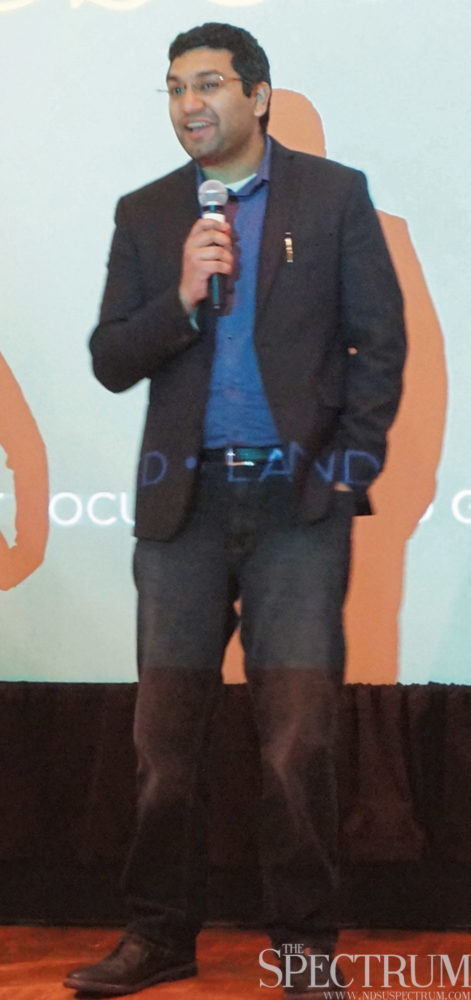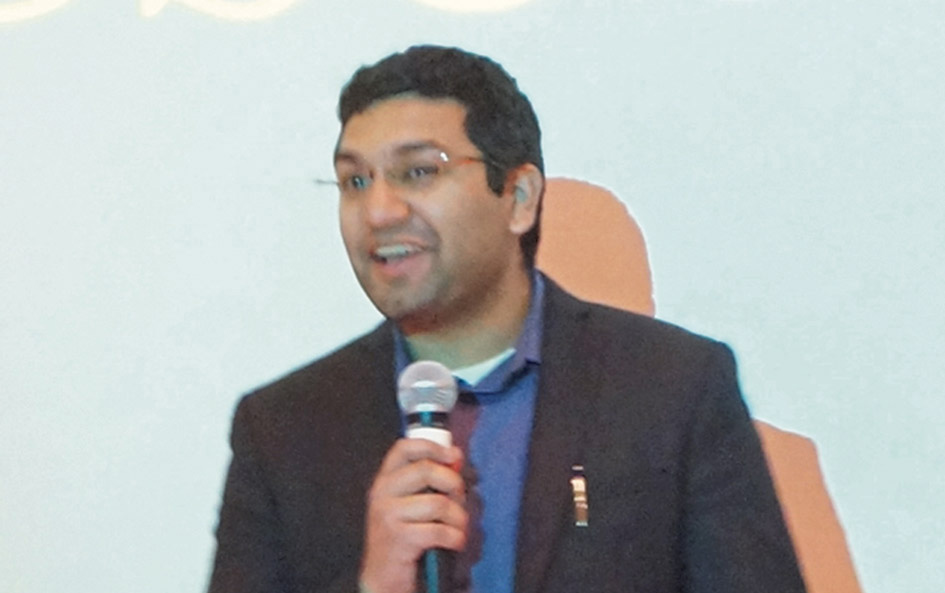
Manpreet Bains won the second annual Three-Minute Thesis Competition Feb. 10.
For Manpreet Bains, the hardest part was stage fright — not condensing complex human microbiome research into a three-minute spiel.
“That was probably the hardest thing to overcome,” Bains, a doctoral student studying molecular pathogenesis, said.
He was one of five groups of graduate students competing in North Dakota State’s Graduate School’s Three-Minute Thesis Competition Feb. 10, taking home the $1,000 prize and a greater sense of the variety of research on campus. Breaking down thousands of words stemming from years of research into a three-minute presentation, Bains and his fellow competitors showcased their research’s variety for laypeople.
“It’s not easy because when you talk about research, you’re talking to other people who do research,” he said. “For them you can use terminology and use different wording to explain a concept they may be familiar with.”
Bains, who graduated from in zoology from NDSU in 2013, said he focused his presentation on two core concepts: the human microbiome and brain proteins.
His research, he said, is best explained as “100 trillion cells in the human body, and there’s 10 times more bacterial cells on your body. (My research is) understanding how these work with your body and how they alter things in your body you really wouldn’t expect.”
While he has yet to write his thesis, Bains said he practiced his presentation for his friends and girlfriend Cassandra Hillen, who also competed in the Three-Minute Thesis Competition.
Hillen, who is completing her master’s degree, presented her gluten intolerance research, replacing wheat with peas.
“I tasted some of those cookies … It tastes just like a normal sugar cookie to me. You don’t really expect peas to be in there,” Bains said of Hillen’s research.
The sheer variety in research surprised him too, he said, though he grew acquainted with the diversity in research at NDSU when he competed in the first Three-Minute Thesis Competition last year.
From cardiac pacemakers to research on agriculturalists’ deafness, Bains said NDSU has more than what meets the eye in terms of its research.
“What I really hope comes from the victory is people are able to … realize NDSU has a lot to offer when it comes to research and the variety of research that goes on on campus. Its truly amazing,” he said.
How will he spend his $1,000 prize?
“It’s all going back to NDSU,” Bains said. “I have yet to pay my student fees.”
